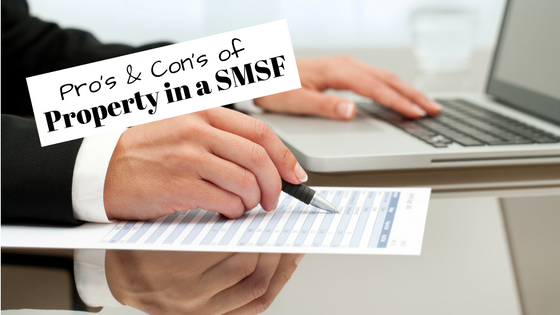The Pros & Cons of Buying a Property in a SMSF
By Shane | Uncategorized

There’s an increasing number of Australian investors who have taken control of their super fund and are utilising them to purchase property investments. Self-Managed Super Funds (or SMSFs for short) have become the single biggest asset class in Australia. But before going in-depth with the advantages and disadvantages of borrowing with a SMSF, you should first understand SMSFs.
Understanding Self-Managed Super Funds
A Self-Managed Super Fund is a fund established by one to four individuals for the sole purpose of providing retirement benefits. While SMSFs has the same rewarding financial benefits and concessions as retail, corporate or industry super funds, the significant difference and the main attraction for most people is the ability of the members to take personal control of the assets invested.
The trustees are responsible of the investment decisions because they have the ability to come up with a range of financial strategies intended to meet the specific needs of each member, and they are held accountable in revising these approaches as circumstances change. The members, who are also trustees of the fund, have full control over the investment which includes being responsible for all investment decisions. As a member, you’re privileged to respond assertively should an investment opportunity arises.
Pros
Cons
In Summary…
If you’re knowledgeable and you consider yourself as an expert in investing, a SMSF could be a good option for you because you’re already experienced when it comes to managing your time and your own investments. You’ll also have the advantage in fixed costs, unlike a retail fund which charges fees as a percentage of the value of your portfolio. On the other hand, running a SMSF is undoubtedly complicated and time consuming. Furthermore, it is very important that you’ve gain expertise about investments because you’ll need to create and document your fund’s investment strategy, take note of your investments and transactions and record them, and confirm that your fund is sufficiently diversified to help you manage the risks of investing.
Session expired
Please log in again. The login page will open in a new tab. After logging in you can close it and return to this page.